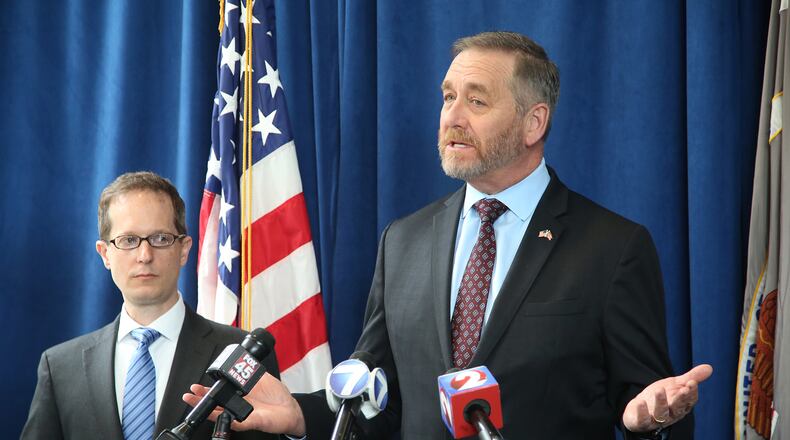“The rest of Ohio — and Ohio itself — is being left behind in the MDL lawsuit in Cleveland,” Yost said.
RELATED: Ohio AG may take over local opioid lawsuits; Dayton mayor says it's a 'terrible idea'
Eighty-six of Ohio’s 88 counties have “no voice” in the October trial, which affects only Cuyahoga and Summit counties, Yost’s office said.
“The hardest-hit counties of Appalachia and the vast majority of the state are being asked to take a number and wait — and that wait could delay or prevent justice,” Yost said.
The attorney general’s brief argues that Ohio county should have “equitable access” to money from a settlement or a jury verdict, but that money should come “in a single action by the state on behalf of all its people.”
There has been tension between state government and localities about how to proceed with lawsuits against makers and distributors of opioid painkillers.
Ohio legislators are considering giving Yost exclusive authority to file and settle civil lawsuits over statewide issues, including pending litigation filed against the pharmaceutical industry.
MORE: 'American Factory': Senator says he was 'startled' by Fuyao's furious reaction
Dayton Mayor Nan Whaley has called that a “terrible idea.” In early 2017, Dayton city government sued more than a dozen pharmaceutical companies, distributors and pain specialists it alleges caused the opioid crisis.
Earlier this month, Gov. Mike Wine said it’s time for the drug makers to settle the lawsuits or risk heavy verdicts.
Governments are hoping for a replay of the government tobacco litigation in the 1990s, which resulted in a $206 billion settlement for state attorneys general. But some have said much of that money never made it local government coffers.
About the Author

